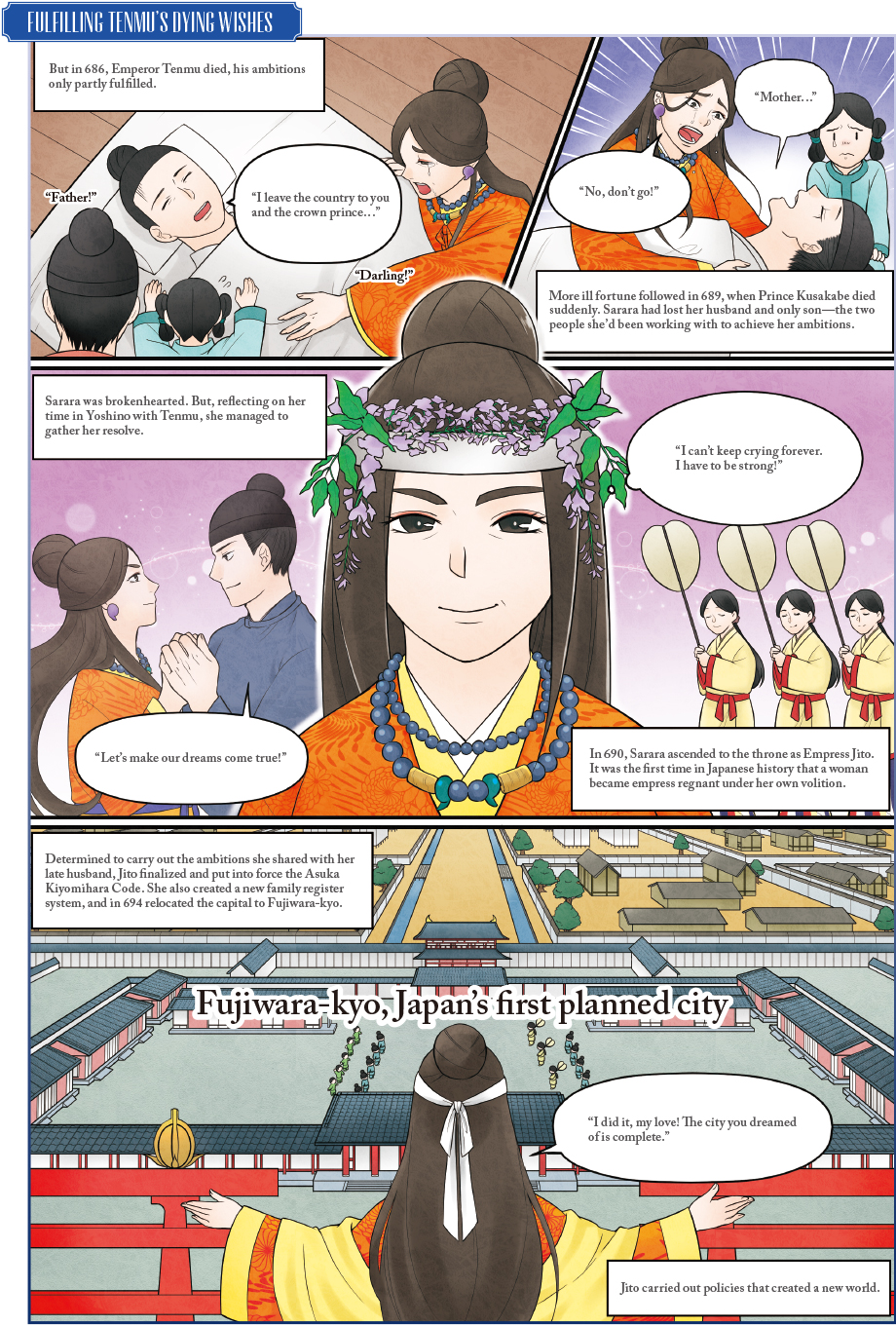Empress Jito forges ahead with the vision of building a nation
Laying the foundations of social institutions in Japan
After Emperor Tenmu died, Jito launched a series of policies that had been drawn up by the late emperor. She saw the completion of a grand new capital in Fujiwara-kyo. The new city had its streets laid out in a grid pattern modeled on the cities of Tang China. It was the first city of its kind in Japan. It’s thought that Fujiwara-kyo in turn inspired the street layout of Heijo-kyo, Japan’s capital during the Nara Period. Jito also established other systems that served as the foundation of Japanese society. These included systems dealing with currency, taxation, family registers, and addresses. She also launched work on compiling the Taiho Code. Around this time, Japanese people started calling their country Nihon (or Nippon) rather than Wakoku. The empress also abolished the system of relocating the imperial palace whenever the reigning emperor changed. Jito was the first to implement the Shikinen Sengu ritual devised by Emperor Tenmu. This ritual involved rebuilding the shrine buildings at Ise Jingu Shrine every 20 years. The ceremonial tradition continues to this day. Empress Jito was a remarkable woman of action who laid the foundations of Japan.
The most popular Man’yo poem?
“Spring has passed, / and summer seems to have arrived: / garments of white cloth / hung to dry / on heavenly Kagu Hill.”* This poem is a typical example of Empress Jito’s work. It is Poem 28 in Book 1 of the Man’yoshu, the oldest collection of Japanese poetry. It also appears in the Hyakunin Isshu poetry anthology. The poem is thought to portray the beauty of colors: the blue of the sky, the green of Kaguyama mountain, and the white of the garments. But there are other interpretations. Under one interpretation, “heavenly” expresses gratitude to the gods for bringing summer. Under another, “spring” represents the time of Emperor Tenchi and “summer” the time of Tenmu and Jito—and therefore the birth of a new era. And under yet another interpretation, the poem is thought to lament the death of Prince Takechi, who supported Jito as daijo-daijin (chancellor), because “even the heavenly hill wears mourning attire.” Taking into account the historical background, the mountain’s location, the emotions of those involved, perhaps you can find your own interpretation.
*Translation by Ian Hideo Levy

